Are you thinking about homeschooling your children? Are you wondering how to homeschool in BC or what resources are available to you here? You’ve come to the right place!
We’ve been homeschooling in British Columbia since my oldest daughter started Grade 1 in 2014. BC homeschoolers enjoy a great amount of freedom and support, both from the large homeschool community and from the government. In this post, I’ll attempt to share everything you need to know about how to homeschool in BC!
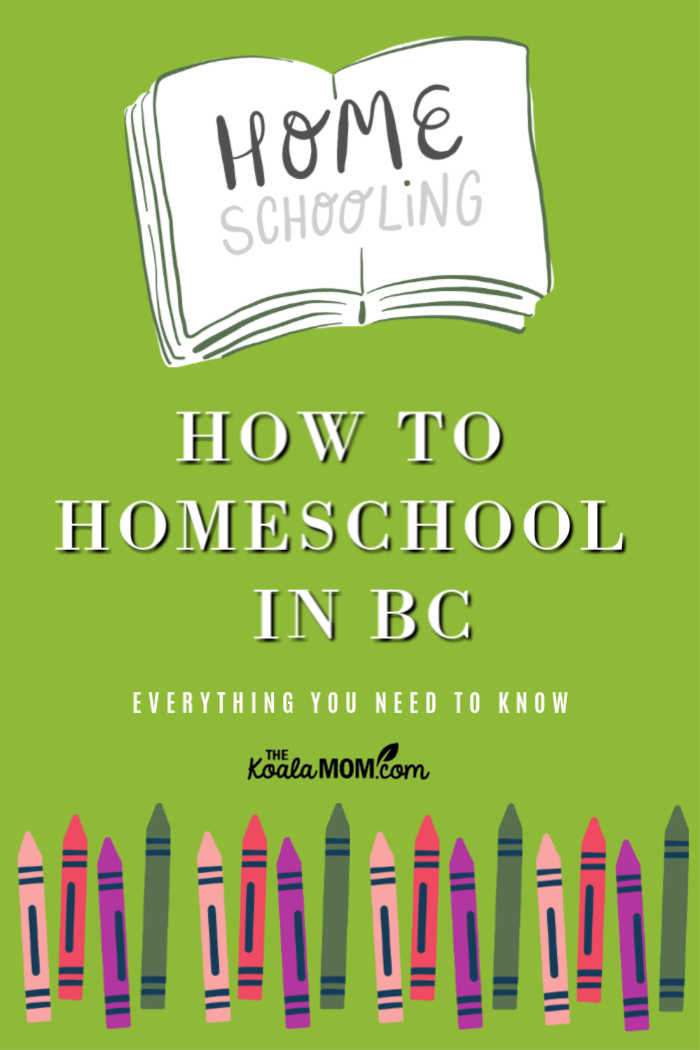
This post contains affiliate links; if you make a purchase via my link, I’ll earn a small commission (at no extra cost to you).
BC’s New Democrats fully support a parent’s right to choose the education stream for their children, whether it be in independent, faith based or public schools. We recognize each family has different needs and believe they have the right to choose the school that best supports those needs. ~ Hon. John Horgan, March 2017
Some Homeschool Terminology
To me, homeschool or homelearning has always referred to children (like me as a student, and my kids now) who do school at home rather than in a public or private school. The BC government likes to be a bit more specific, however. Parents have the option to either register as homeschoolers or enroll as distributed learners (DL).
Register as Homeschoolers
On their website, BC defines “homeschooling” as “an alternative method of teaching offered outside the B.C. educational system. Typically, a family member delivers the entire educational program to children at home.” Homeschoolers are not supervised by a BC teacher, not required to meet BC standards, and not inspected by the Ministry of Education.
To homeschool, you must simply register with the government. This basically means you inform the government via your local public or private school that you intend to homeschool your child(ren). You may then choose any curriculum for your children and have no requirements to follow the BC curriculum. If you register through to Grade 12, your child will not receive a BC dogwood (or high school diploma).
Enroll as Online or Distributed Learners
The other option for families is to enroll as online or distributed learners. You can do this through numerous online and distributed learning (DL) schools throughout the province, both public and independent (see below). You then have a DL teacher who oversees your child’s education, providing advice and support (if needed) and making sure your child is meeting BC educational standards. You will also receive some funding per student per year from the government, to use for curriculum, school supplies, and extracurricular activities.

Should You Enroll or Register?
Choosing to enroll or register is a personal choice, based on your family, your children and your unique needs.
Registering gives you complete freedom to create your own curriculum and pursue your child’s educational goals, without having to follow BC’s curriculum. It may require less work of mom (as you aren’t reporting to a teacher) or more work (as you are the one who must do all the research and create all the learning supports).
Enrolling provides you with government funding for your child’s education, but you are now accountable to a teacher and must fit your child’s learning to the BC curriculum (your teacher will help with this). If you enroll all the way through to graduation, your child will earn a BC high school diploma.
We are enrolled as distributed learners, and have been since Sunshine started Grade 1. When I’ve faced questions about homeschooling, I’ve been glad to have my DL teacher to consult with. We also appreciate the funding to purchase homeschooling supplies, as textbooks, workbooks, education subscriptions, lessons and more are not cheap.
I know two families who have chosen to register. One mom is a BC teacher with several years of classroom experience, so she already knows the BC curriculum outcomes and is familiar with lesson planning and teaching. The other is a veteran homeschool mom; her children are now graduating and getting married, and she is a popular speaker at homeschool conferences. Both families have a good income so don’t require the homeschool funding.
I dislike the terms “distributed learners” or “online learners.” First, it’s a mouthful. Second, most homeschoolers I know don’t do much school online (except in high school, where online courses are the standard). I use both terms in this post, but for me, homeschooling means anyone learning at home, whether you register or enroll.
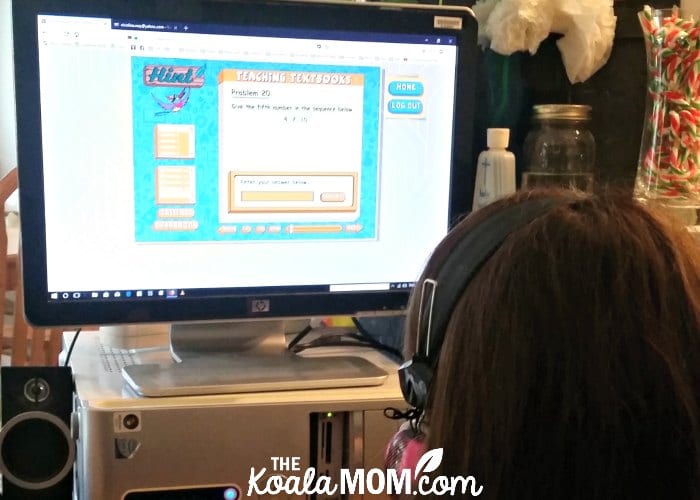
Independent Distributed Learning Schools
If you choose to enroll as an distributed (or online) learner, then there are a variety of schools for you to choose from. Some public schools offer distributed learning options, where your child can take courses at home or do a combination of in-class and at-home work (called hybrid or blended school). BC also has several independent distributed learning (IDL) schools, some of which are attached to an independent brick and mortar school.
Each IDL school offers slightly different options to your children. You will want to research them to see which options meet your child’s needs and fit with your educational philosophy. You can also ask fellow homeschoolers about where they are enrolled and what they like about their school. (See below for connecting with other homeschoolers.)
Popular independent distributed learning schools in BC include:
- Ascend Online (Catholic school based in Kamloops, BC with a family-first focus)
- Traditional Learning Academy (Christian school based in Surrey with options for blended learning and other courses)
- Heritage Christian Online School (Christian school based in Kelowna)
- Regent Christian Online Academy (Christian school based in Victoria with community classes and clubs)
- Self-Design (secular school based in Vancouver)
For more options, browse this list of distance learning programs in BC.
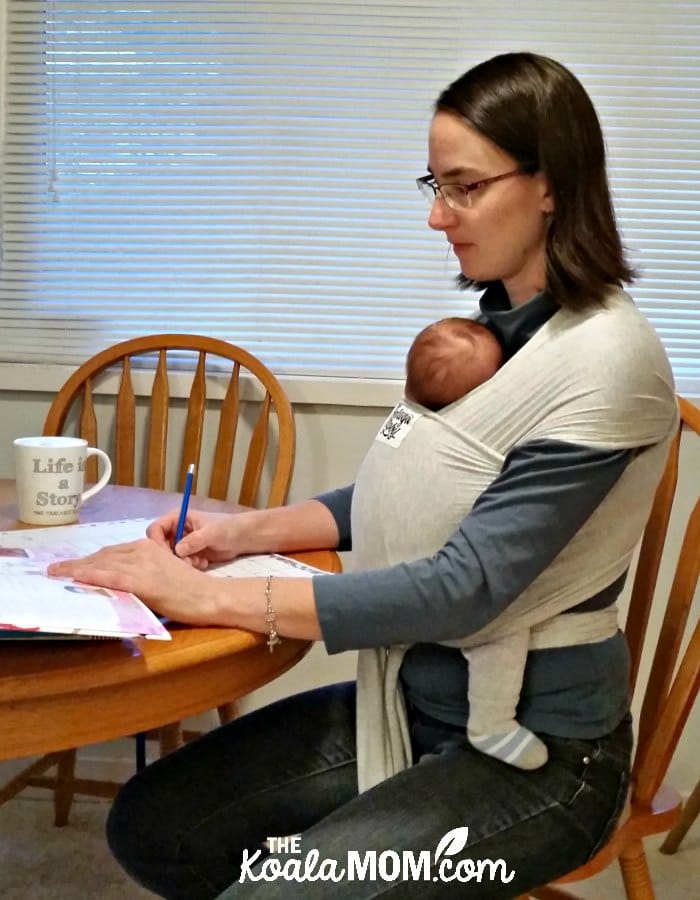
Homeschool Funding
Here in BC, we are blessed to receive some funding from the government for distributed learning. The exact amount of funding you receive per child varies slightly from school to school, as different DL schools have different ways of distributing the funding and offer different resources to students. For example, some DL schools may offer less funding to parents for curriculum but have a lending library so that you can borrow many of the resources required for the year.
When researching distributed learning schools on the list above, you’ll want to look at how they allocate funding to students and which funding methods help your family the most. Enrolled students can receive more funding per year than registered students (who may be able to get a small amount of homeschool expenses reimbursed at the end of the year).
Whatever school you enroll with, you will not handle the funding yourself. Each family is assigned a Purchase Order number (PO#) at the beginning of the school year. You will use your PO# to order curriclum from homeschool suppliers. You can also use your funding to pay for extracurricular activities for your child, such as music lessons or sports. Paying for these will have to be arranged with your school, and meet their requirements for third-party service providers.
2020 Funding Update
In spring 2020, the NDP government decided to reduce the funding given to independent distributed learners. No other school board in BC faced this funding cut; even public distributed learning schools retained their previous funding. Distributed learners across BC are imploring the NDP to restore funding to IDL schools (if not increase it), as this funding cut discriminates against students who choose this method of learning.
This funding cut has forced all IDL schools to readjust how they use their funds and to implement tuition, since the government treats IDL schools as “private” schools and feels that they should be charging tuition (even though most learning happens at home rather than in a classroom). Special needs funding is not affected by this funding cut.
How to Homeschool on a Budget
If finances are a factor in your decision to homeschool, you’ll want to discuss funding options with your chosen DL school. Some DL schools are trying to offer bursaries and different schools have different ways of distributing the funds (or different operating costs to deal with).
There are also ways of reducing the costs of homeschooling, such as curriculum swaps, buying used curriculum, borrowing books from your local library or your DL school’s lending library, etc. There’s a huge variety of curriculum and resource options available to homeschoolers today, so you can shop around to find resources that fit your budget. Homeschooling multiple kids reduces your costs (in subsequent years) as younger children can reuse textbooks and you merely need to buy new workbooks (or more paper and pencils).
Looking for more tips? Tricia Goyer has tons of advice on this topic in her e-course Homeschool Success!

Homeschool Groups in BC
Now that you’ve decided how to homeschool in BC and have either registered or enrolled with your chosen school, you’ll want to meet other homeschoolers. The good news is that there are lots of homeschoolers for you and your kids to hang out with. The bad news is that they are scattered across the province. For us, being involved in various homeschool groups requires some driving. Depending on where you live, there are different options for meeting other homeschoolers.
Facebook is a great place to start connecting with other homeschoolers. There are a variety of homeschool groups there for distributed learners, both in BC and around the world. Use the search feature to look for groups in your area (there are groups that are city specific and not just for BC home learners). There are also groups for students with special needs, like autism, or special interests, such as Charlotte Mason or Catholic homeschoolers.
BC Home Educators Association has a huge list of homeschool support groups on their website. Many of these have Facebook groups but also organize local activities and field trips.
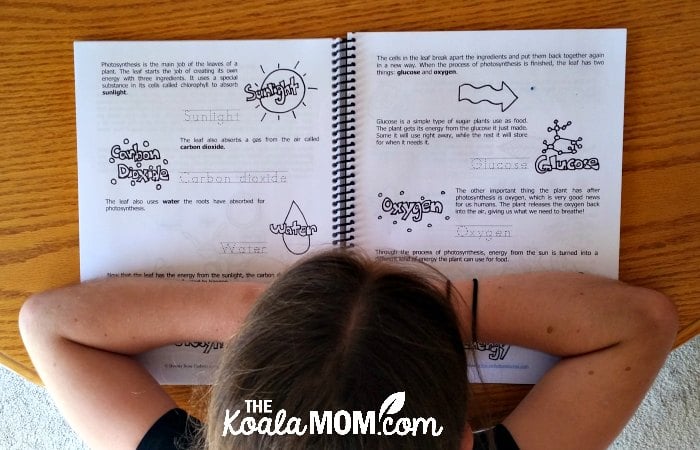
Extracurricular Activities for Homeschoolers
There are a variety of extracurricular activities available to homeschoolers in BC. In fact, some students choose distributed learning because it allows them more time to pursue their extracurricular interests, including sports and music. DL students can access programs offered outside school hours by local recreation centres, community sports leagues, dance and fitness studios, etc.
Many homeschool programs offer classes during school hours (e.g., mornings or early afternoons). I find these more convenient as they keep evenings free for family time and let me make supper for our family in the later afternoon (instead of running kids to activities). Homeschool programs may also allow kids of a wider age range to participate, making it easier to enroll multiple kids in the same class (which means less driving to and from activities).
To find homeschool programs in your area, browse your local recreation guide. Not all homeschool programs are advertised in the rec guide, however, so you may want to call your rec centre to inquire. For example, my girls have done both swim lessons and skating lessons with other homeschoolers. These classes were offered in the morning or early afternoon.
You can also ask your fellow homeschoolers what classes they have found.
BC Homeschool Conferences
Another great way to connect with other homeschoolers, browse curriculum and homeschool resources, and get support and encouragement as a homeschool family is to attend a homeschool conference. NOTE: unfortunately, these conferences are cancelled in 2020 due to covid19.
BC Home Learning Conference
BCHLC is hosted in May at Trinity Western University. “Our vision for this conference is to come from a Christian perspective, ministering to the needs of Christian families, both registered and enrolled with Independent Schools, although all families are welcome to attend.” This 2-day homeschool conference is sponsored by BC IDL schools and offers a vendor hall and experienced speakers.
Canadian Online Homeschool Conference
CANHSCON is a Canada-wide online homeschooling conference hosted in February by the Canadian Homeschooler. This conference features recorded sessions from a variety of homeschool experts and parents plus an online vendor hall. You can attend live in February or purchase access to past conferences for only $27. (I was a speaker at the 2017 conference and am an affiliate as well.)
Western Canadian Catholic Homeschooling Conference
WCCHSC is hosted in Edmonton, Alberta, in March. “This conference provides a valuable retreat for husband and wife. It is also an invaluable opportunity for fellowship; listening to engaging talks; and time for personal prayer to prepare for your homeschooling journey ahead.” They also have space in their vendor hall for homeschool families to sell used curriculum.
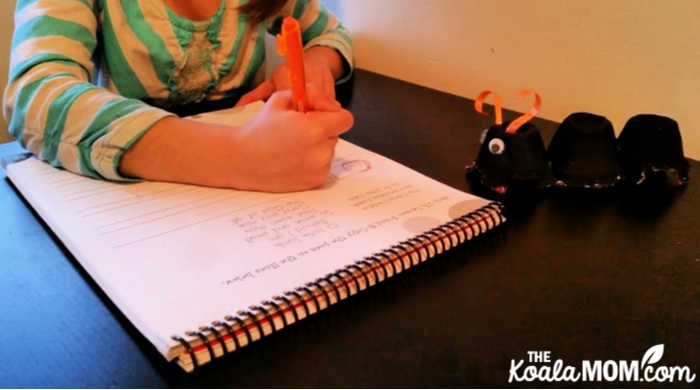
Canadian Curriculum Suppliers
Next up: how to choose your homeschool curriculum. One of the disadvantages of living in Canada is the high cost of shipping curriculum and other resources from the United States. Curriculum from the States also includes a American history, politics, currency, and more, which can sometimes be confusing (or unnecessary information) for Canadian students. Whenever possible, I try to use Canadian curriculum or to order through Canadian suppliers.
If you aren’t sure where to start with curriculum, talk to your DL teacher. They’ll likely have recommendations for curriculum based on your child’s needs and grade levels and your homeschooling experience. You can also chat with other homeschoolers. Homeschool Facebook groups have frequent discussions about the pros and cons of various textbooks, curriculum, and online programs. I also like browsing the homeschool resources that my friends are using. Finally, you can preview most curriculum online and read curriculum reviews.
A few Canadian curriculum suppliers:
- Blue Mantle Educational Supplies (Catholic vendor based in Alberta)
- Heritage Resources (secular supplier based in Manitoba with a huge resource list and fast shipping)
- Northwoods Press (excellent Canadian history and geography resources and more)
- Canadian Home Education Resources (excellent lists of ideas / resources for new homeschoolers)
- Learning House (based in Ontario but offers curriculum display meetings across Canada so you can browse before buying)
- Classical Education Books (bookstore based in Abbostford)
More Questions about Homeschooling in BC?
Here’s what a few other bloggers have to share about how to homeschool in BC:
- Q&A with four BC homeschoolers (including me!)
- A2Z Homeschooling (tons of links to more resources)
- BC Home Educators Association
- 25 Things You Need to Know about Homeschooling in Canada
- Homeschooling in BC (the funding information in this post is outdated)
What else would you like to know about how to homeschool in BC? If you’re already a BC distributed learner, what would you share with someone who is considering homeschooling here?

18 Comments
If you want to just register and not enroll – do you still have acess to programs such as the PIE classes? If so, how does one get access to this?
Hi Sharon – I’m not familiar with the PIE classes. If you want to register, I believe you’d still be able to access various classes and programs in your area. You’d want to check with each school about their requirements for joining their classes, as some require you to be an enrolled student in order to access certain classes.
Hi! Your blog is so very helpful. Here in the states, our homeschooled children are allowed to participate in sports teams at their closest public school. Is that an option in BC? Especially for high school?
Christy – that may vary from state to state (or province to province) and even school to school. My oldest daughter is currently attending a local high school and they have a strict “no cross-enrollment” policy. Other high schools may allow cross-enrollment. You’d have to enquire with your homeschool teacher (if you have one) and then with the school of choice. We’ve had better success with enrolling our children in community sports programs rather than school sports. My girls have participated in a local rugby club and in a local track and field club, both of which have had great opportunities for building community, developing new skills, and competing with other teams.
Thank you for this article. Do you know if there is any government support for students with learning disabilities? My daughter has a diagnosis that allows her funding at the school for an EA support person. If we should choose to homeschool her, are we eligible for that funding? Your help is appreciated!
YES, government funding should follow your child even if you chose to homeschool. I know several families who have children with disabilities who have received extra funding and support for those children from their homeschool board. Homeschooling is an attractive option for many families with special needs kids because YOU can support your child at home while also accessing extra resources and funding to help them succeed. I would reach out to one of the local homeschool boards to chat with their special education coordinator for more details about your specific situation.
Hi Bonnie, I just wanted to thank you for this information! We’ve just switched the kids to homeschooling and your blog has been very helpful in easing my worries and explaining the details. Hope you and the girls are doing well.
Amber Dawn – welcome to the journey!!! I’m so glad my blog has been helpful to you. Reach out anytime if you have questions! 🙂
Hi, I have a question regarding the eligibility of a parent to home school his kid. This parent has been increasingly showing signs of instability and pushing his kid to commit wrong doing around our neighborhood such as damaging stuff because he is just playing. We have spoken to him and he says kids can enjoy themselves as much as they want, and the more we ask the more the boy does more on purpose. Other than that, the dad constantly gives out complaints regarding those around just to satisfy his ego. The kid is about 10 now and is increasingly following his dad’s directives in causing trouble, how can we request someone to evaluate this parent’s home schooling eligibility? They are also hardcore antivaxxer and they are hated by a lot of people around. This boy was perfectly fine, but now he is the leader in trouble making, and he has only been homeschooled. Thank you.
Hi Char – I would say if there are instances of vandalism in the neighborhood, then you need to report those to the police. If you suspect abuse towards the child, you could approach social services. However, your comment shows a lot of judgement and hatred towards this parent. Their opinions on vaccines is their own; healthcare is a personal decision each person should make on their own and has nothing to do with a decision to homeschool a child. I firmly believe parents also has a right to choose the best educational option for their child. I’m sorry you have a difficult neighbour to deal with, but the vandalism seems to be a separate issue rom the other choices this parent is making. Please don’t assume that homeschoolers are anti-vaxxing, abusive vandals. 🙁
Hello,
I am homeschooling my 6 year old daughter (kindergarten). She is a registered homeschooler not enrolled. I would love to continue homeschooling. Do I need to register to homeschool every school year? When I check the official BC website it says that you need to register by Sept 30th each year.
Yes, you need to either enroll or register your student every year to homeschool, just as you would enroll or register every year in a public or private school. The school board you are currently registered with may send you a reminder that you need to re-register for the next year. Usually, re-registration or re-enrollment is fairly simple as the school board already has most of the information about your family and your student, so you just need to tic a few boxes to indicate that you are continuing to home educate your child. All the best!
You mention in your article that you can simply “Register” with the government to let them know you will be homeschooling your child, but I cannot find anything about how to do this. Why is it so complicated!? Can you please help?
Hi Terri – sorry, you do not register with the government, you would register with a school. You can do this through any of the schools I listed in this article (such as Ascend or TLA) and I believe you can also do it through public schools. There is more about that here: http://bchea.ca/getting-started/educational-options-in-bc/home-schooling-option/. I hope this helps!
Hi, I have a question, my duaghter has been registered as a homeschooler up to grade 11, could she attend public school for grade 12 and still be able to graduate?
Hi Raya – yes, you should be able to switch between homeschool and public school at any point in your child’s education. You’d want to approach your local high schools and talk to them about their procedures for admissions. If you are registered with a homeschool board, then they can help you with the paperwork to transfer your daughter. Otherwise you may need to create your own transcripts for your daughter to show the high school. All the best!
Have you had difficulty with your kids learning? Like have they argued sometimes when school work need to be done or demand to do something else ?what do you do when that happens
Hi Lisa, yep, this happens. 🙂 The kids will argue with you and with each other. There’s a few things that will help. First, getting into a routine. The kids might be excited at first about new books and new ways of doing school, but that will wear off and they’ll start to resist. Having a good routine in place will help get through this. Second, motivation. When I was a kid, if we were done school by 2 pm, we could call our friends and go play. We were usually done school by 2 pm. 🙂 Find something like that to help motivate your kids… if school, then this. Third, reassess. Are they resisting because you have set expectations too high? Are they just resisting because it’s new? Maybe a change of routine would help. For example, I tried to start with math to get the big, tough subject out of the way first thing. The girls hated that. I changed to starting with history (and reading aloud together in the morning) and that got us going on a more positive note. 🙂 If there’s still resistance, talk to a good homeschooling friend or your supervising teacher for more specific ideas for your situation. 🙂 All the best!